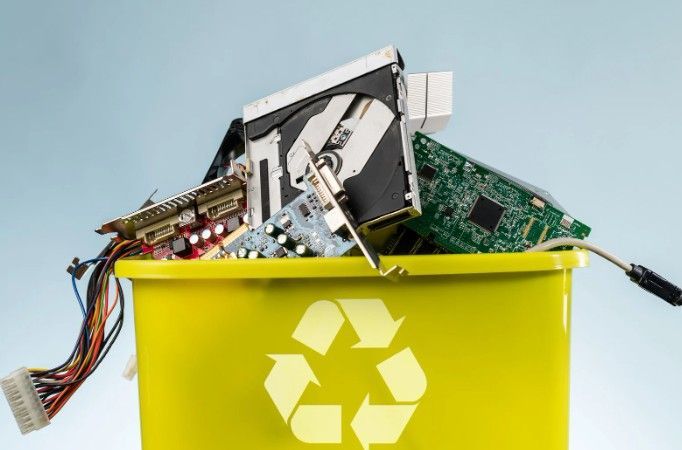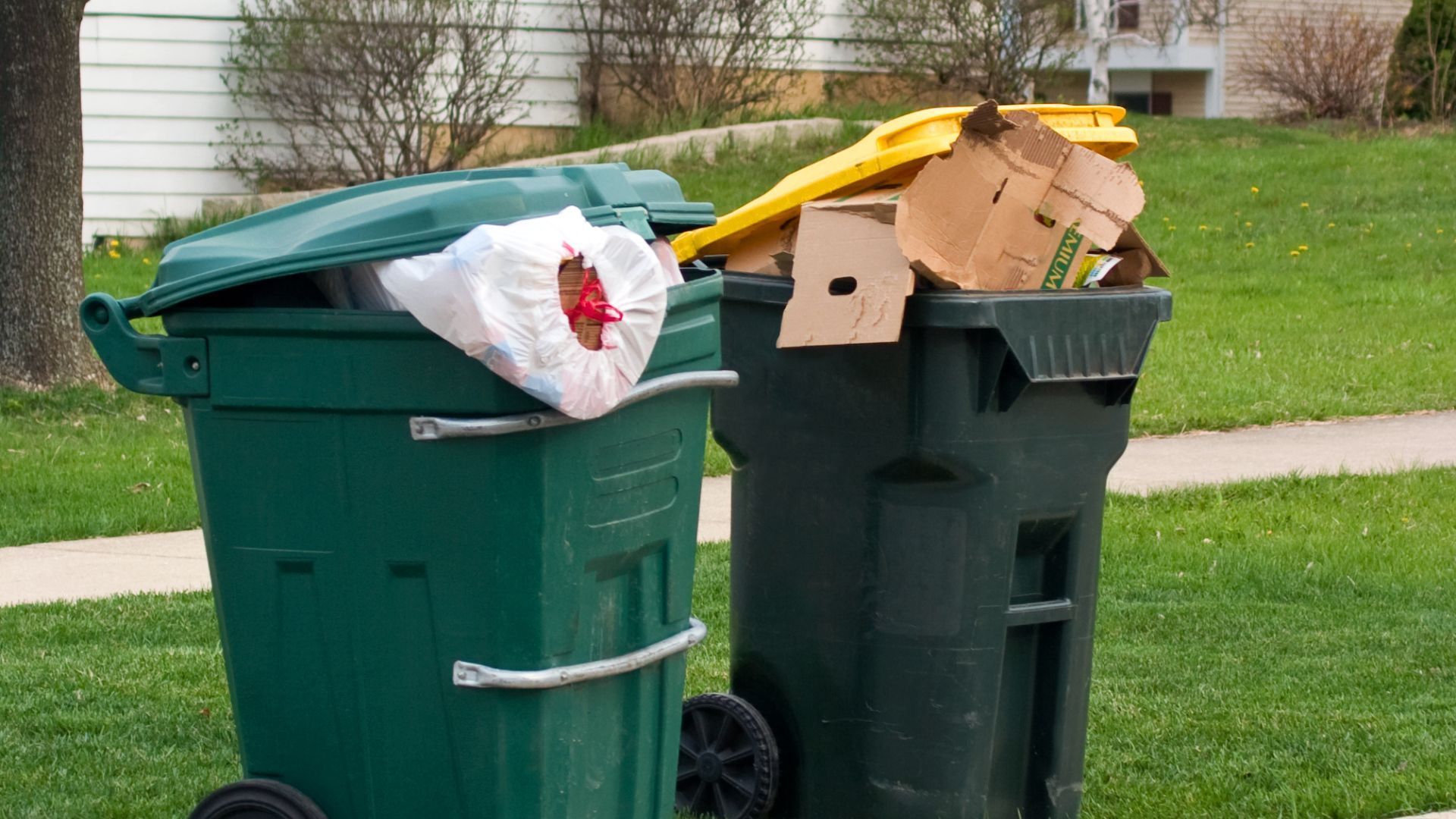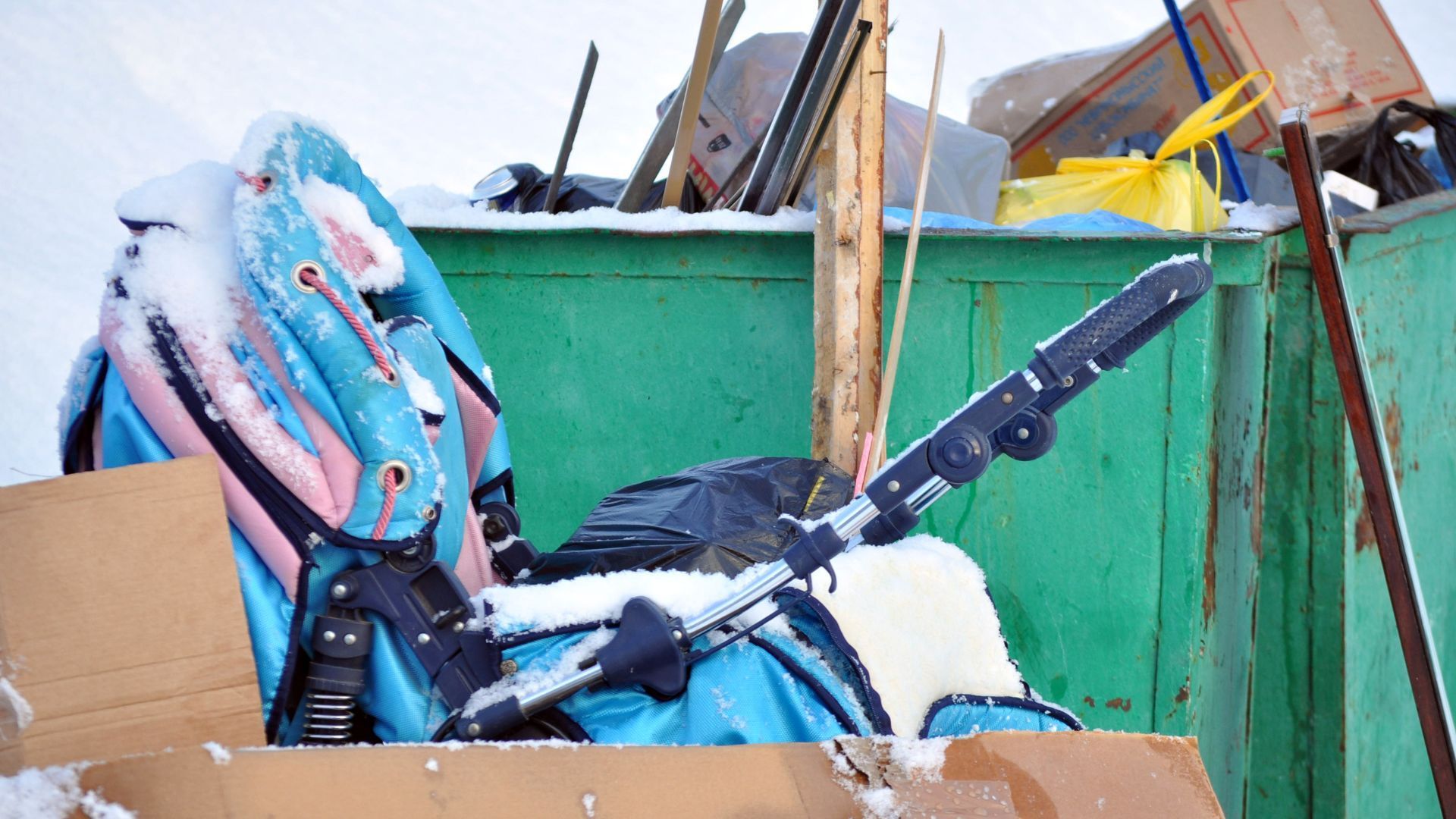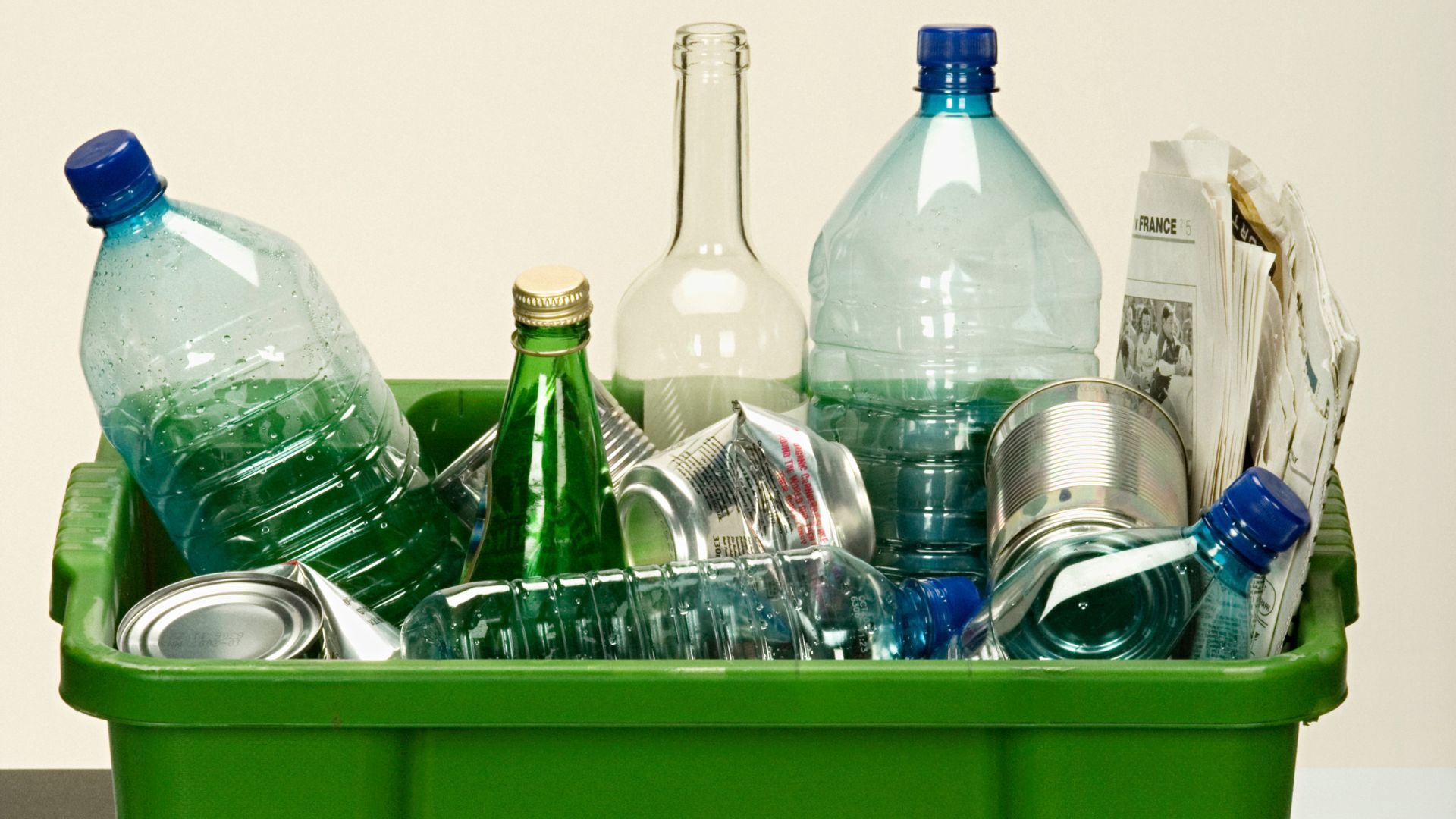E‑Waste Environmental Augusta and Its Impact on Sustainability
In the dynamic city of Augusta, Georgia, technology pulses through daily life—from living rooms outfitted with smart TVs to office towers powered by ever-evolving systems. Electronics are no longer luxury items; they’re essential tools woven into the fabric of modern living. However, behind each device upgrade lies a growing environmental dilemma: the mounting tide of electronic waste. Old cell phones, broken printers, obsolete gaming consoles—these relics of yesterday's innovation often end up in landfills, where they quietly leak toxins into the earth and water.
This piece takes a closer look at Augusta’s evolving relationship with e-waste and why it's more than just a local concern—it’s a sustainability issue that touches every layer of the community. From environmental impact to regulatory responsibilities and local disposal options, we explore how smarter e-waste management can reshape Augusta’s ecological footprint while helping residents and businesses alike protect the place they call home.
The Hidden Shadow of Convenience: What Is E‑Waste?
Every time a device is replaced—a television, a washing machine, a smartphone—it ends up either stashed in a closet, sent to a landfill, or, ideally, delivered to a recycling or disposal service. "E‑waste" encompasses the gamut of electronic and electrical items that are nearing obsolescence, malfunctioning, or simply unwanted. These encompass computers, televisions, printers, gaming consoles, and a host of household appliances.
Across Augusta, the unseen accumulation of electronic scrap—discarded motherboards, spent batteries, and lifeless cables—quietly contributes to soil contamination, groundwater pollution, and air quality degradation. The residual presence of substances such as lead, mercury, cadmium, and brominated flame retardants in e‑waste can seep into the environment, disrupting vital ecosystems. Left unattended, these contaminants not only threaten wildlife but also compromise human health.
Augusta’s Electronic Footprint: Why Proper Disposal Matters
Although often out of sight, e-waste is anything but out of consequence. When electronic items are mixed into ordinary refuse, they typically end up in landfills ill-equipped to isolate toxic compounds. Rainwater filtering through landfill deposits leaches chemicals into groundwater, impacting everything from aquatic species to residential water supplies. Some of Augusta's own neighborhoods lie in proximity to disposal sites. In these areas, even seemingly slight oversights in waste management can ripple into broader consequences.
However, there’s a counterweight: responsible disposal pathways help block this route of exposure. It begins with separating devices from household trash and continues through sorting, dismantling, and transferring them to licensed recycling and processing facilities. Electronic circuit boards may be reclaimed for precious metals, batteries undergo proper treatment, and plastics are shredded and repurposed—preventing toxins from leaking out. Furthermore, items in working condition can be refurbished or donated, extending their lifecycle and cushioning both economic and environmental expense.
Regulatory Landscape in Georgia: Local Mandates and Standards
Georgia enforces a range of regulations governing waste disposal, particularly for potentially harmful materials like electronics. Municipal ordinances in Augusta, for instance, require specialized handling and transport of e-waste, and limit or prohibit its burial in landfills. Businesses in particular are mandated to certify that electronics have been properly dismantled, recycled, or disposed of in accordance with applicable state laws.
Yet regulations are only a framework; it falls to the community and local service providers to operationalize those rules. Residents may be unsure where to take their old devices, and businesses may lack clarity on disposal logistics. Having trusted partners who understand and adhere to these regulations ensures compliance while making the process accessible.
The Role of Professional E‑Waste Services
Consider the scene: a homeowner calls a local junk removal service to haul away a cluster of outdated electronics—computers, printers, gaming consoles—collectively forgotten in a basement. Rather than tossing everything together, a professional team arrives equipped with the knowledge and tools to sort items properly. They single out e‑waste and pledge to funnel those components into certified recycling protocols. This isn’t mere housekeeping; it’s intentional stewardship. Over time, those efforts accumulate: fewer toxins in landfills, more material reclaimed, less reliance on raw mining—a quieter but meaningful shift toward circular economy thinking.
On a grander scale, businesses from offices to retail stores benefit from streamlined e‑waste solutions. Decommissioned computers, flat-screen monitors, copiers, and servers are grouped for pickup and channeled through secure, compliant routes. When sensitive data is stored on old hardware, secure erasure or document shredding might even be part of the service. The result is twofold: space is freed up for growth, and the city’s environmental footprint shrinks.
Innovating for Community Impact

What does truly effective e‑waste management look like in Augusta’s neighborhoods? Imagine a retired teacher who cycles a stack of functioning laptops back into service with nonprofits or local schools. Picture a storefront that proudly sports a “e‑waste drop-off point” on weekends. See a residential complex where move‑outs involve scheduled e‑waste pickups, rather than dumping into communal trash bins. This shift in mindset—from waste to resource—reshapes how communities relate to technology.
Professional providers advance the cause. Armed with local ordinance knowledge, streamlined logistics, transparent pricing, and pickup flexibility, they demystify disposal. They may even offer same-day service, meaning abandoned appliances and archaic electronics won’t linger in yards or garages—deteriorating against the elements and seeping pollutants.
Benefits of Proper E‑Waste Management
- Environmental Health: By keeping toxics like lead and mercury from geofronts or bodies of water, responsible handling protects both land and living beings.
- Material Recovery: Valuable metals—gold, silver, copper—concealed in circuit boards can be reclaimed, reducing the pressure on mining industries.
- Legal Compliance: Proper processing ensures residents and businesses comply with state and local regulations, avoiding potential fines.
- Community Well-Being: Clean spaces, fewer pollutants, and charitable redistribution of working electronics foster trust and social capital.
- Business Efficiency: For companies, removing outdated infrastructure cleanly and confidentially supports both productivity and corporate social responsibility.
Overcoming Challenges: From Logistics to Awareness
Despite progress, barriers remain. E‑waste can accumulate in basements, garages, and storerooms simply because homeowners and businesses are unsure how to part with it responsibly. Public awareness still remains an obstacle. Additionally, individuals may hesitate due to perceived costs or inconvenient collection times.
This is where local service providers make the difference. They can offer door‑to‑door pickups, free or affordable drop-off events, and transparent estimates that outline exactly how items will be managed. On the commercial front, they can work on after-hours scheduling to avoid disruptions, and document chain-of-custody for secure disposal.
E‑Waste: Part of a Larger Sustainability Conversation
Electronic waste is not an isolated issue—it intersects with energy use, land development, consumer culture, and global supply chains. By approaching e‑waste responsibly, individuals and communities contribute to a broader sustainability agenda.
Upstream practices—such as buying devices with repairable designs or modular components—reduce future e‑waste. Midstream practices—like maintenance, battery replacement, and upgrades—extend device lifespan. Downstream, when devices reach end-of-life, there's an imperative to recycle and reclaim effectively. Together, these behaviors weave into a circular economy: materials retained, ecosystems protected, and human needs balanced against environmental limits.
The Ripple Effect: Community Outcomes
When e‑waste is managed responsibly, the effects extend far beyond the haul-away day. Recycled electronics reduce demand for freshly mined metals—a process that leaves its own scars on landscapes and water supplies worldwide. Communities see fewer illegal dumping sites, better air and water quality, and safer neighborhoods.
Businesses that clean out inventory or tech infrastructure responsibly demonstrate a commitment to sustainability—and can leverage that in marketing, in employee morale, or in compliance reporting. Even small gestures—like donating functional items—become acts of solidarity, bridging technological gaps in under-resourced schools, shelters, or nonprofit groups.
What You Can Do
As an Augusta resident or business:
- Keep outdated electronics out of general waste. Instead, arrange for dedicated e‑waste pickup.
- Look for local service providers who adhere to Georgia’s disposal mandates and can offer secure, certified handling.
- Consider donating working devices to community groups, schools, or thrift programs.
- Ask your service provider how exactly the e‑waste is processed, and whether parts are refurbished, materials recycled, or hazardous compounds treated.
How Augusta's Old Electronics Quietly Threaten the Future
Behind the closed doors of basements and backrooms, outdated electronics sit untouched—quiet relics of tech's rapid march. But in Augusta, those dusty monitors, broken phones, and forgotten cables are doing more than just taking up space. They represent a growing ecological hazard. E-waste doesn’t degrade like kitchen scraps or yard clippings; instead, it leaks toxins over time, turning once-safe spaces into risk zones for soil and water pollution.
The quiet danger is amplified when unaware residents toss electronics into regular trash bins. Each misstep sends harmful metals deeper into Augusta’s environment, endangering communities near landfills and water sources. It’s not just about cleaning out clutter—it’s about intercepting a destructive cycle. Augusta’s sustainability fight starts with recognizing that e-waste is more than trash—it’s a loaded risk disguised in plastic and metal shells.
Conclusion
The surge in electronic consumption brings undeniable advantages, powering progress in homes, schools, and workplaces. However, it also casts a darker shadow—one steeped in toxic runoff, buried contaminants, and growing environmental hazards. In Augusta, addressing e-waste isn't merely an act of environmental responsibility; it's a collective civic duty. Ensuring that outdated gadgets and electronics are handled properly—whether through recycling, secure disposal, or refurbishment—demands trusted, well-equipped local services that understand the impact of improper handling. Responsible disposal isn’t just a trend—it’s a critical step toward long-term sustainability.
Raising awareness of proper practices and encouraging responsible action across the city builds a ripple effect that benefits everyone.
Rather than letting electronic waste accumulate or end up in landfills, residents and businesses are urged to turn to professionals who prioritize compliance, safety, and environmental preservation. One reliable option is Hinkins Disposal, located in Augusta, GA. Whether you’re clearing out a garage or replacing office equipment, their responsive, environmentally conscious approach ensures e-waste is handled the right way. For service inquiries, contact Hinkins Disposal at (706) 885-4032 or via email at Hinkinsdisposal@gmail.com.




